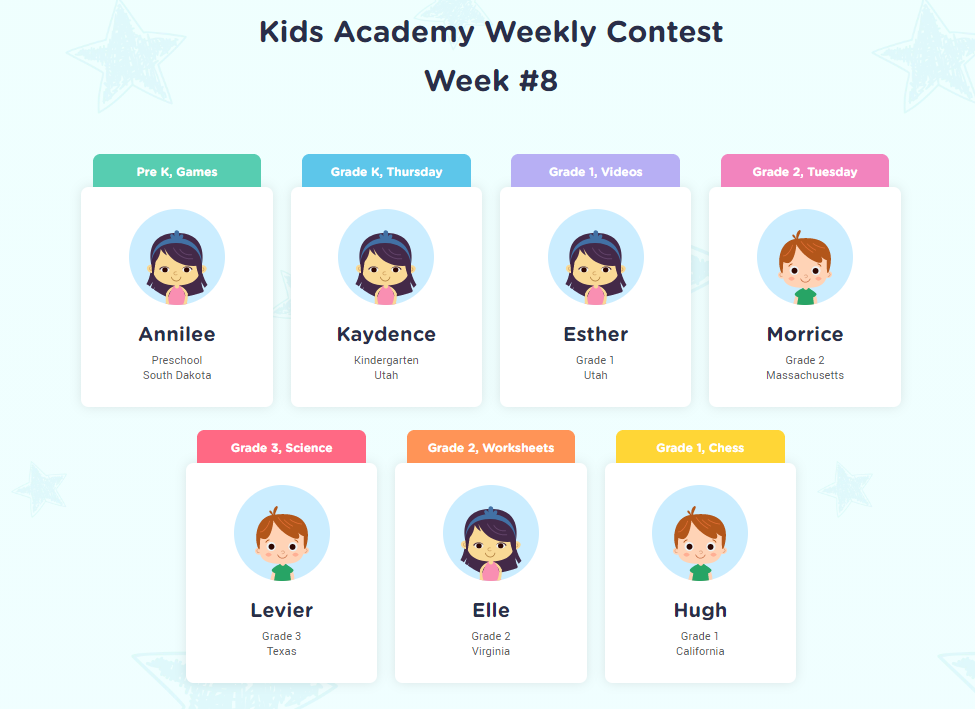Easy Alphabet worksheets activities for Ages 4-8
6 filtered results
-
From - To
Discover a treasure trove of easy alphabet worksheets and activities designed specifically for children aged 4-8! Our engaging resources foster early literacy skills while making learning fun and interactive. With a variety of worksheets that incorporate colorful visuals and captivating exercises, kids will enjoy tracing letters, identifying beginning sounds, and practicing their writing. Ideal for parents and educators, these activities enhance recognition and recall of the alphabet, ensuring a solid foundation for reading success. Whether in the classroom or at home, our easy alphabet worksheets are perfect for nurturing your child's love for learning. Explore today and spark their curiosity!
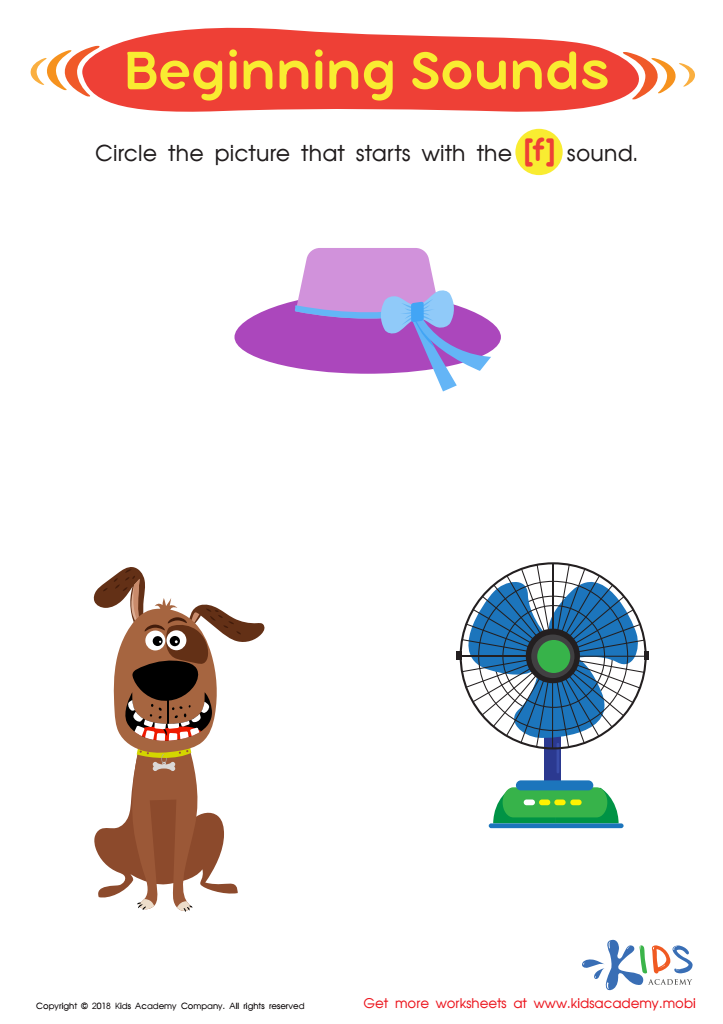

Beginning Sounds Assessment Printable
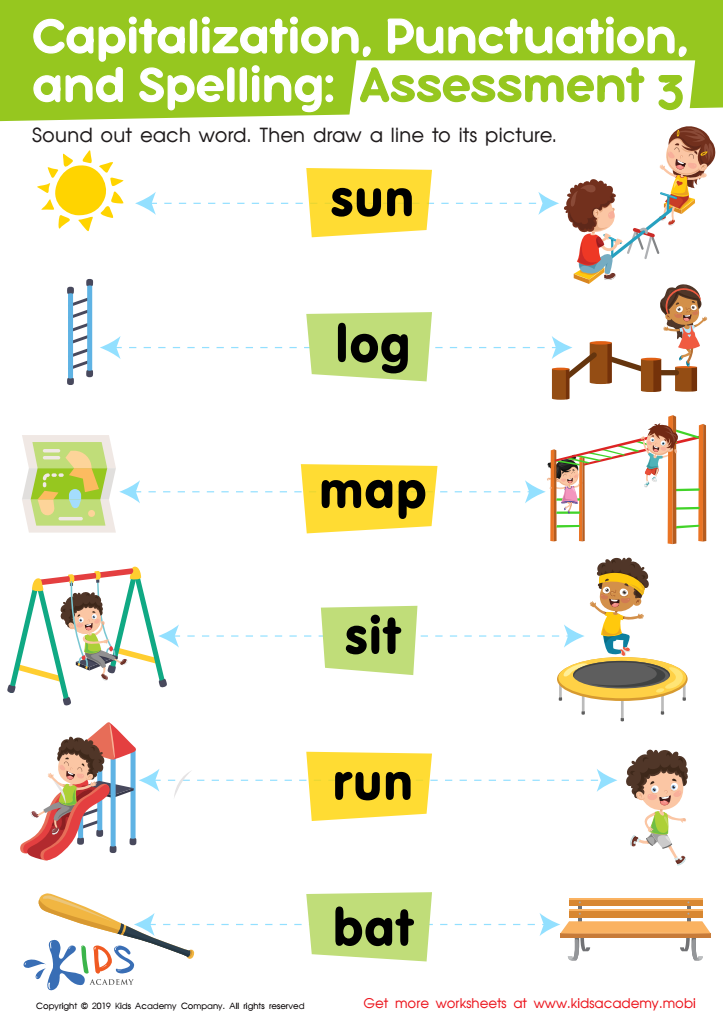

Capitalization. Punctuation. Spelling. Assessment 3 Worksheet
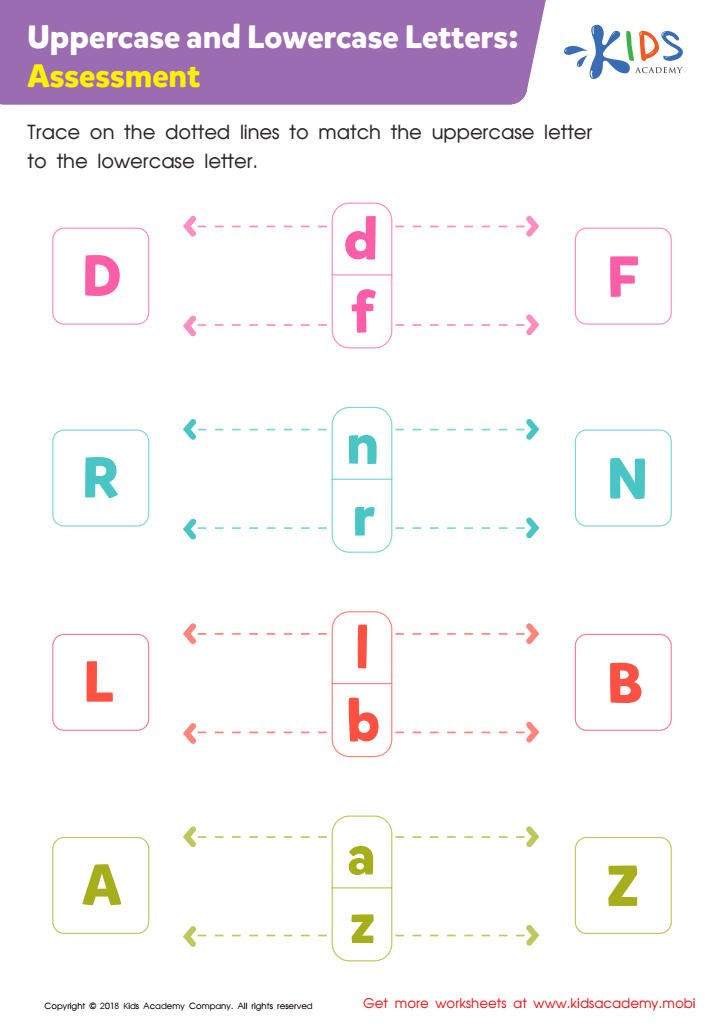

Uppercase and Lowercase Letters: Assessment Worksheet
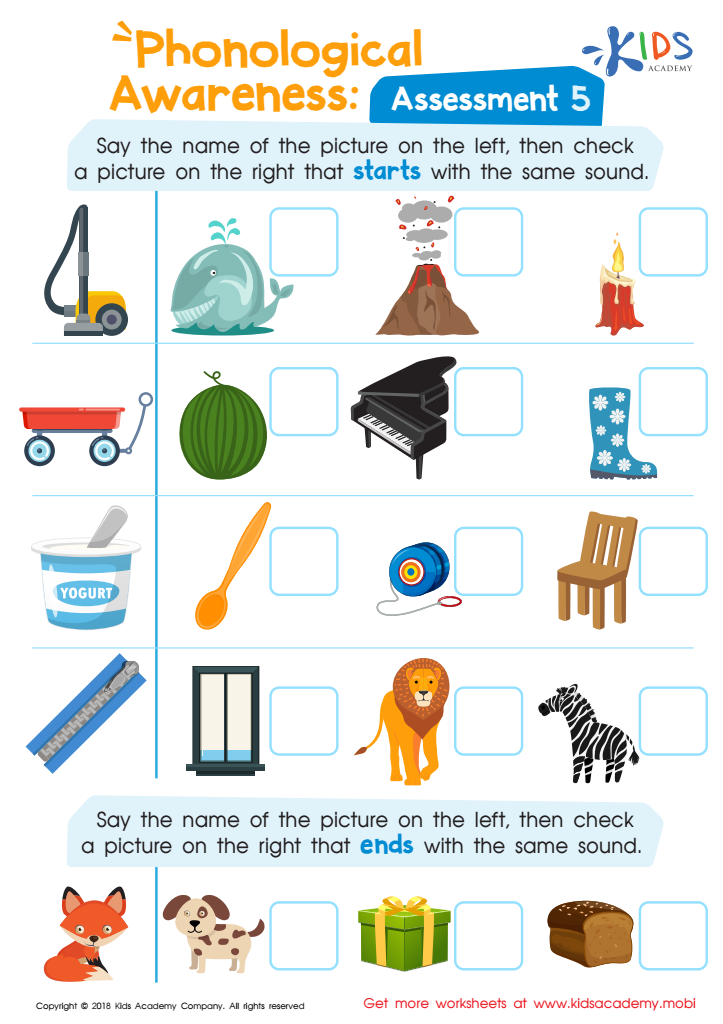

Phonological Awareness: Assessment 5 Worksheet


Phonics and Word Recognition: Assessment 1 Worksheet
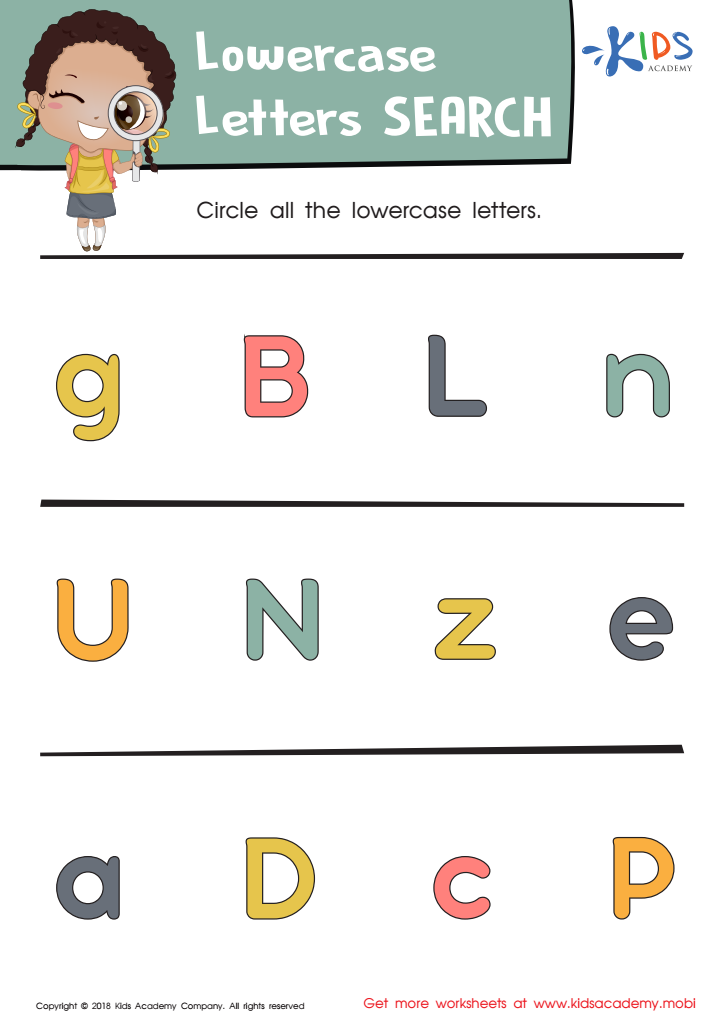

Lowercase Letters Search: Assessment Worksheet
Parents and teachers should prioritize Easy Alphabet activities for children ages 4-8 because these activities lay the foundational skills necessary for literacy development. At this age, children are naturally curious and eager to absorb new information. Engaging them with fun and interactive alphabet activities helps reinforce letter recognition, phonetic awareness, and early vocabulary. This crucial stage of learning can influence their future academic performance and overall confidence in reading.
These activities often incorporate games, songs, and crafts, which keep children motivated and enthusiastic. They also cater to various learning styles, ensuring that all children can participate and find success. Furthermore, Easy Alphabet activities can enhance fine motor skills through writing and drawing, making learning a multi-faceted experience.
Additionally, these activities foster a positive relationship between children and reading. By cultivating an enjoyable learning environment, parents and teachers can instill a lifelong love for reading, critical for personal and professional development. Ultimately, Easy Alphabet activities are not just about learning letters; they are about building a strong educational foundation that supports lifelong learning and linguistic proficiency. Investing time in these activities benefits a child's early education more broadly and shapes their future literacy journey.
 Assign to My Students
Assign to My Students


